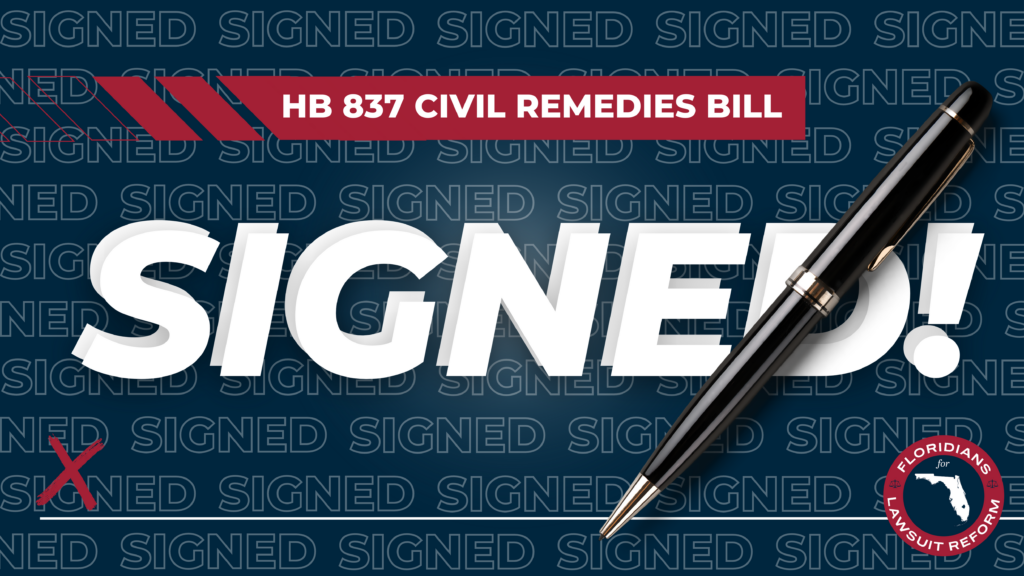
Posted: Mar 24, 2023 / 02:08 PM EDT
Updated: Mar 24, 2023 / 08:35 PM EDT
TAMPA, Fla. (WFLA) — Florida Governor Ron DeSantis approved major changes Friday to the state’s tort laws, cutting down so-called frivolous lawsuits by limiting injury and insurance litigation and attorney fees.
According to the governor’s office, House Bill (HB) 837, titled Civil Remedies, modifies the “bad faith framework, eliminates one-way attorney’s fees and fee multipliers, and ensures that Floridians can’t be held liable for damages if the person suing is more at fault.”
The new law, which DeSantis proposed in February before the start of the 2023 Legislative Session, also expands immunity for property owners who are defending against a criminal who is injured on their property and reduces the statute of limitations for general negligence cases from four years to two years.
Additionally, the governor’s office says the legislation makes changes to Florida’s comparative negligence system so a plaintiff who is more at fault for his or her own injuries than the defendant cannot generally recover damages from the defendant. The bill even expands immunity for property owners who are defending themselves from a lawsuit against a criminal actor who was injured on the property and requires a judge or jury to consider the fault of all persons who contributed to an injury.
“Florida has been considered a judicial hellhole for far too long and we are desperately in need of legal reform that brings us more in line with the rest of the country,” DeSantis said. “I am proud to sign this legislation to protect Floridians, safeguard our economy, and attract more investment in our state.”
However, the law has not been discussed without resistance.
Edward Reyes, founder of The Reyes Firm in Tampa told WFLA’s Melissa Marino, “House Bill 837 would be catastrophic to Florida families.
“Imagine having to tell a grieving mother that she cannot seek compensation from a driver whose reckless behavior took her child’s life,” Reyes said. “Imagine having your entire home destroyed by a hurricane, only to have your insurance company deny a claim or lowball their offer. And imagine if there were nowhere to turn for help. Those nightmare scenarios could become reality under this legislation.”
Now signed into law and officially in effect, the law “returns Florida’s tort system to fundamental American judicial principles that the most responsible pay for the damages they caused,” Rep. Tommy Gregory said.
Despite pushback by some advocates, attorneys, and state lawmakers, both leaders of the Florida Legislature’s chambers were supportive of the reform effort, which mimicked the approach used for property insurance reforms from a December special session.
The leaders forecast the bill’s impacts as a boon to Florida’s economy.
